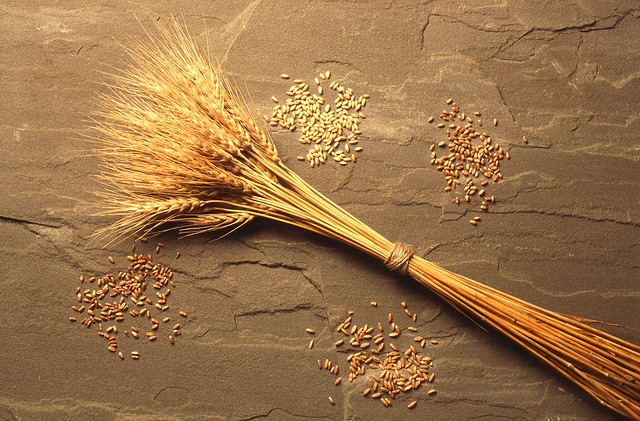
You know what they say about land – they’re not making any more of it.
In fact, when it comes to agriculture, the amount of available farmland is shrinking. When you couple that with a world population of nearly 10 billion by 2050, it’s not unusual to ask if there will be enough food to eat.
To answer that question, two Cornell University scientists are working with wheat in a way that may both improve crop yield and increase the amount of productive land farmers have to work with. USDA’s National Institute of Food and Agriculture is supporting this research with a $500,000 Agriculture and Food Research Initiative grant.
Dr. Olena Vatamaniuk and Dr. Mark Sorrells are studying the physiological, molecular, and genetic mechanisms of how plants process the micronutrient copper. It’s known that a deficiency in copper compromises crop fertility and reduces grain/seed yield; what’s not well-known is how copper uptake and internal transport is achieved and regulated, or how copper impacts wheat fertility.
Previous studies of Arabidopsis thaliana (thale cress), a plant commonly used in research, indicate that two proteins play a major role in copper uptake, delivery, and plant fertility. Vatamaniuk, an associate professor of soil and crop sciences, and Sorrells, a professor of plant breeding and genetics, are using their interdisciplinary approaches to understand these proteins and how they affect copper transport pathways in wheat.
The team is using cutting-edge equipment: CRISPR/CAS9 technology to understand the function of SPL7 pathway in wheat; an advanced particle accelerator, called synchrotron X-ray fluorescence imaging, to visualize copper distribution; and RNA-sequencing and quantitative trait locus mapping to identify copper deficiency and SPL7-regulated genes and regions of the chromosome associated with improved copper movement to wheat reproductive organs and grain yield.
While it’s too early for field trials, Vatamaniuk said that lab work with a wheat proxy, Brachypodium distachyon (stiff brome), increase in copper uptake has led up to a 7-fold increase in yield. Knowledge gained in this project will also be applicable to other cereal crops, including rice, barley, and oats.
If successful, this research could improve grain yield on soils currently in cultivation and allow farmers to plant high-yield crops on marginal lands previously deemed unsuitable for farming. It may even help feed the world.
NIFA invests in and advances agricultural research, education, and extension and seeks to make transformative discoveries that solve societal challenges.
